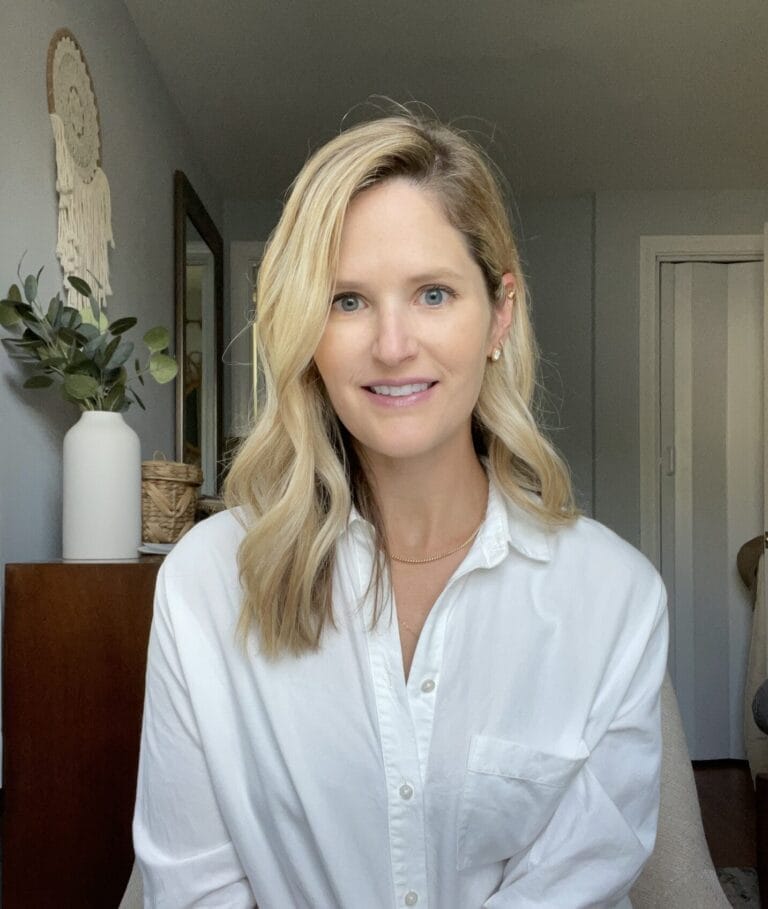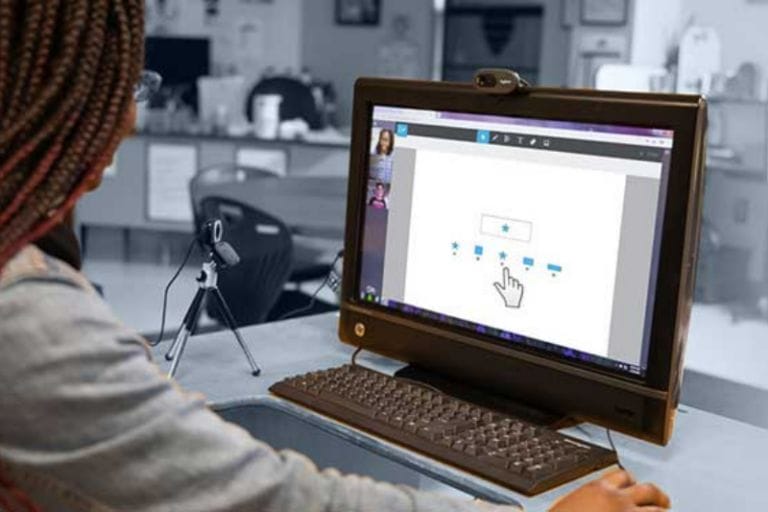SLP Series with Kristin Martinez
As a school-based speech-language pathologist (SLP), you are doing meaningful, impactful, and necessary work. With the number of students requiring evaluation and direct therapy services continuing to grow, it’s very clear that SLPs are crucial members of every district education team. But consider how your time is utilized in your current position.
What percentage of your time is spent doing the work you are uniquely trained and qualified to do as an SLP, and what percentage of your time is spent driving between locations, or supporting building- or district-wide needs, training, and initiatives that are tangentially or completely unrelated to your role?
I worked as an in-person SLP in my local school district and in private practice for 13 years before making the transition to teletherapy with PresenceLearning nine years ago. Until I made this change, I didn’t realize just how many of my school district in-person roles and responsibilities were actually pulling me away from my primary work as an SLP.
We all want to support our teams, and many of us have difficulty saying “no” when most of our schools are shorthanded and the expectation is “all hands on deck.” It took me stepping away from my in-person role and transitioning over to teletherapy to realize that saying “yes” to the many asks outside of my primary role was actually detrimental not only to me as a professional, but also to my students who needed me to be 100% in my role as an SLP.
Enter pandemic-era learning circumstances on top of already beyond-scope, overworked roles, and many SLPs are seeking new working conditions and settings. And enter the new spring season and the time of transition it offers: Many of you reading this may be, like I was all those years ago, wondering what new career opportunities are out there that suit your talent and skills but offer greater flexibility. For me, and for many others, teletherapy has simply been a game changer. Why? How?
1. Continue to learn and grow in your career while balancing everything else that is important in your life!
All of us have experienced pandemic-era life in some unique but also shared ways, and if there is one likely common realization, it is the importance of revisiting our time and priorities as they pertain to our work, health, friends, and loved ones. In short, many of us are asking why we can’t build our work around health and family priorities, rather than the other way around.
Working with PresenceLearning allows you to set your work hours in a way that supports your individual and family priorities. As IEP meetings took place before school, I used to leave my house at 6:30 a.m. three days a week to travel to two of the mountain schools I supported. This meant that I had to get up before 5 a.m. to get myself ready, get my three daughters up, dressed and fed, and pack lunches for them—forget exercise or having a moment to sit down with my own cup of coffee (that’s what travel mugs were invented for, right?).
Working with PresenceLearning entirely shifted my daily circumstances. I could start working with students at 9 a.m. (what!?), because I cross-licensed in California and Oregon, and I live in Mountain Time, so this was 8 a.m. for my west coast students. Starting therapy sessions at 9 a.m. from my home office felt luxurious, and I actually felt like I had a few moments to myself even after taking care of everyone else in my life. I could determine my own break and lunch schedule, and, while I was still working with students when my kids got home from school, I was present and could check-in with them while I finished up my day.
2. Take control of your side of the service delivery equation
Many in-person service providers, whether in school, clinic, or hospital settings, have had to shift quickly, and (in some cases) frequently between delivering services in-person or online in the past two years. I have heard from so many SLPs how stressful and fatiguing the back-and-forth and uncertainty have been. Those of us who were providing all services via teletherapy before school closures began had much more consistency in our day-to-day lives.
As a teletherapist, whether your students are sitting in a school or at home, your planning and service delivery remain the same. In addition, you are also able to be more consistent with your family in the case that their work and learning circumstances change. We can’t have control over every aspect of our jobs, but in this area of your work, being a teletherapist can enable much more consistency while also providing more flexibility. Both of these aspects of teletherapy have significantly improved my ability to bring a better work-life balance to my daily routine.
3. Expand your professional support network
As an on-the-ground SLP in my last local school district position, I got to know my building teammates well, and they were wonderful educators and collaborators. However, I often felt rather isolated as the only SLP in my building departments. Of course, we had speech-language department meetings every other month, but the bulk of the time in those meetings had to be spent on district-wide and department updates, logistical planning and problem-solving, etc. There seemed to be little time (by necessity given how much our department leader had to cover) to discuss clinical questions and to collaborate.
When I joined PresenceLearning, I suddenly had a network of several dozen (that number has now grown to over 2,000!) clinical colleagues with whom I could connect via The Lounge (PresenceLearning’s online collaborative community). I could ask very specific questions about how to approach a certain goal area via teletherapy, or request recommendations for new activity ideas, and my colleagues jumped in with wonderful suggestions and enthusiastic support! It seems counterintuitive that moving to delivering services online from my home could lead to an expanded and more easily accessed professional community, but it did. There is such power in the collective knowledge and experience of the PresenceLearning clinical community, and our teams are always looking for new and better ways to build collaborative opportunities in support of our clinicians and our students.
About the Author
Kristin Martinez, M.A., CCC-SLP, is Clinical Director, Speech-Language Pathology & Occupational Therapy at PresenceLearning.She received her M.A. in Speech, Language, and Hearing Sciences from the University of Colorado at Boulder, and has been a speech-language pathologist for 19 years. Kristin provided speech-language therapy to children in her local school district and in private practice before starting as a teletherapist with PresenceLearning in 2013. Kristin has served as a clinical manager and teletherapy subject matter expert with school districts across the country, and she presents on the topics of speech-language pathology and teletherapy nationwide.
Join Us Today!
We’re actively hiring. Start your new teletherapy career, and apply here now.




